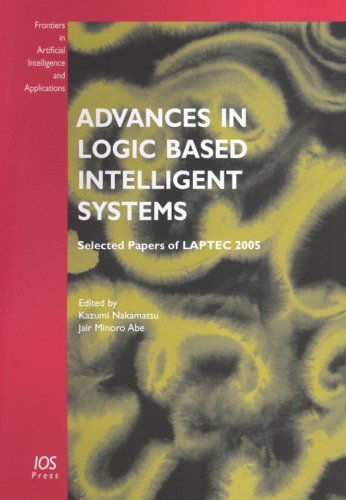

Most ebook files are in PDF format, so you can easily read them using various software such as Foxit Reader or directly on the Google Chrome browser.
Some ebook files are released by publishers in other formats such as .awz, .mobi, .epub, .fb2, etc. You may need to install specific software to read these formats on mobile/PC, such as Calibre.
Please read the tutorial at this link: https://ebookbell.com/faq
We offer FREE conversion to the popular formats you request; however, this may take some time. Therefore, right after payment, please email us, and we will try to provide the service as quickly as possible.
For some exceptional file formats or broken links (if any), please refrain from opening any disputes. Instead, email us first, and we will try to assist within a maximum of 6 hours.
EbookBell Team

4.3
98 reviews
ISBN 10: 1586035681
ISBN 13: 9781586035686
Author: M Abe K Nakamatsu
LAPTEC 2005 promoted the discussion and interaction between researchers and practitioners focused on both theoretical and practical disciplines concerning logics applied to technology, with diverse backgrounds including all kinds of intelligent systems having classical or non-classical logics as underlying common matters. It was the first time for LAPTEC to be held in a different country than Brazil since its birth in 2000, and has made the congress more international. This book is dedicated to Emeritus Professor Atsuyuki Suzuki in commemoration of his honorable retirement from Shizuoka University, March 2005. Prof. Suzuki is learned in application of para consistent logic, and has contributed many papers and as a member of the program committee to LAPTEC since the beginning.
IOS Press is an international science, technical and medical publisher of high-quality books for academics, scientists, and professionals in all fields.
Part I: Foundations and Non-Classical Logics
Part II: Logic Programming and Automated Reasoning
Chapter 2: Logic Programming Paradigms
Chapter 3: Automated Deduction and Theorem Proving
Part III: Intelligent Systems and Applications
Chapter 4: Knowledge Representation and Reasoning
Chapter 5: Logic-Based Approaches in Machine Learning and Data Analysis
Chapter 6: Intelligent Agents and Multi-Agent Systems
Chapter 7: Applications in Specific Domains
Part IV: Theoretical Aspects and Future Directions
Chapter 8: Complexity and Decidability in Logic-Based Systems
Chapter 9: Philosophical and Foundational Issues
advances in logic based intelligent systems
advanced intelligence systems
advanced intelligent systems impact factor 2021
advanced intelligent systems impact factor
advanced logic research
Tags: M Abe K Nakamatsu, Advances, Intelligent